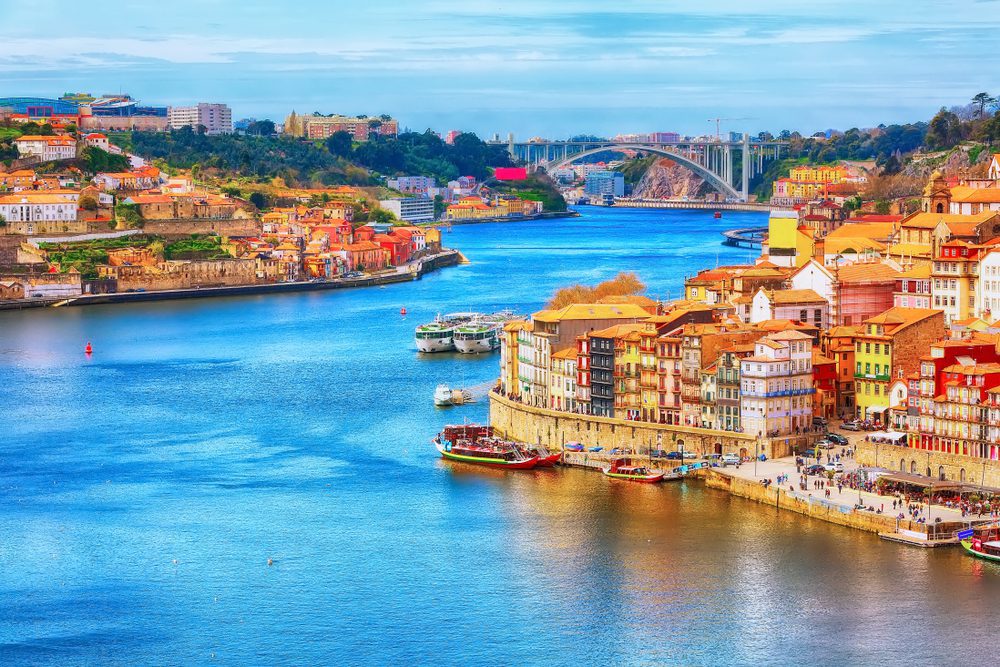The Portuguese real estate market is showing a complex yet promising trend for the remainder of 2024, according to the latest international report by Property Market-Index.
The desire to reside in Portugal is robust, particularly in key locations. Lisbon, Porto, Braga, and parts of the Algarve are expected to grow property values by 5.8% on average in 2024, but the wider country and interior will be lower than this. This is nearly double that of the top 10 international real estate markets in 2024.
We have also seen some extraordinary uplifts in capital values at the end of July 2024 in the Central Algarve region in Particular Ferragudo, Silves, and on the edges of The Golden Triangle near Faro Airport.
While the overall national market anticipates a slight increase of 1.2% overall, specific regions are poised to outperform expectations dramatically despite the termination of the Non-Habitual Resident (NHR) tax regime to new entrants at the end of 2023 unless they meet the grandfathering conditions. Key property hotspots in Portugal are the main driver for this growth, especially as it relates to the luxury real estate market.
Amanda Collison, a senior analyst at Property Market-Index, highlights that “Portugal remains a top choice for wealthy expatriates, especially professionals and entrepreneurs from the likes of the UK, Canada, South Africa, Israel, Hong Kong, Singapore and other parts of Europe, and particularly US citizens concerned by divisions and politics in America.”

Driving this is the demand for luxury real estate from wealthy international communities and private wealth due to its lifestyle, climate, popularity, safety, and security, as well as the cost of living, which is nearly 50% lower than the US alone and 30% lower than the UK and most of the EU.
The report states that the Algarve property market in Portugal saw an increase of 15% in the past year. In the summer months of 2024, locations such as Silves in the Central Algarve saw a 10.9% increase, with coastal fishing village Ferragudo seeing a 9.6% increase. Lagos in the Western Algarve saw a 9.7% increase, followed by Tavira, east of Faro, seeing a 9.5% growth.
The Golden Triangle areas, such as Vale do Lobo, Vilamoura, and Loule, have seen a growth of 5.8% in comparison, and Albufeira saw similar growth this summer.
These luxury property hotspot areas in Portugal, alongside popular locations such as Lisbon, Porto, Cascais, Comporta, Sintra and the Silver Coast—continue to draw significant interest, which supports their market strength, particularly at the top-end of the market.
Collison notes, “These regions are in vogue and have international interest and are thriving due to this, defying the broader trends we observe in other developed economies even in their cache local property markets.”
Portugal’s performance is particularly noteworthy compared to other EU countries, projected in 2024 to see an average decline of 2.5% in the same period.
“Portugal’s overall market resilience is strong compared to other developed countries, marking it as one of the most stable and appealing property markets for at least the next few years and beyond,” explains Collison.
However, challenges remain, especially in terms of housing supply. The new government’s housing bill aims to increase property availability, yet progress is slow.
“In 2000, Portugal built 200,000 properties, compared to just 20,000 last year. It’s clear that while the intent to balance demand with supply is there, it will take several years to achieve,” Collison states.
Looking into 2025, Property Market-Index forecasts that while some international property hotspot markets might experience marginal growth, they are unlikely to surpass the momentum in Portugal’s key hotspots.
“Our data suggests that Portugal will continue to outperform many international real estate markets, offering exciting opportunities for investors and residents alike,” Collison concludes.
While the Portuguese market might face slight downturns, strategic locations within the country present lucrative growth opportunities, bolstered by a robust wealthy expat and professional investment presence alongside governmental initiatives to increase housing stock and incentives for local Portuguese people.
The uplift in the luxury market has absolutely no macro effect on the mainstream real estate market in Portugal or first-time buyers due to a need for more affordable housing and incentives from previous governments in Portugal in the last ten years.
